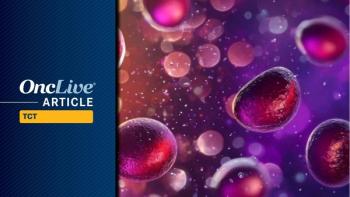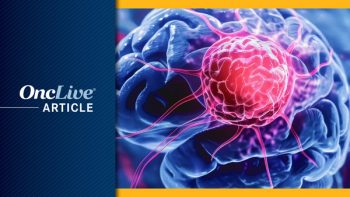
Initial Steps for Treatment of DLBCL
Transcript:
Anas Younes, MD: The treatment of patients with advanced-stage diffuse large B-cell lymphoma hasn’t changed in almost 4 decades, with the exception of rituximab, which was added about almost 15 to 20 years ago. So, the expected outcome for frontline regimens is that we cure about 60% to maybe 65% of the patients. For those who are not cured with frontline regimens or relapse after frontline regimens, the standard of care right now is autologous transplant.
But in the era of rituximab-based therapy, the benefits from autologous transplant have almost reduced by half. So, that tells us that we need something new, something effective, to help patients who don’t respond to frontline therapy or who relapse from autologous transplant or don’t benefit from transplant. For this patient population that fails frontline and second-line therapy, the survival is really poor. The average survival rarely exceeds 1 year, which is miserable. There has not been a single agent approved by the FDA for these patients with relapsed large lymphoma in more than 4 decades. And that’s where the excitement about CAR T cells comes in. Now we’re seeing cell therapy, which is new to all of us, producing up to an 80% response rate, which is unheard of. We never saw an 80% response rate with any agent, despite all the agents being tested over the last 4 decades. And there is a complete response rate, or CR rate, close to 50% in these patients who failed frontline therapy and sometimes an autologous transplant. And I think that’s why it is generating a lot of excitement, that’s why the first drug got a breakthrough, got approved based on a phase II and then a randomized trial. And hopefully additional cell therapy will be approved for the same indication.
Transcript Edited for Clarity




































